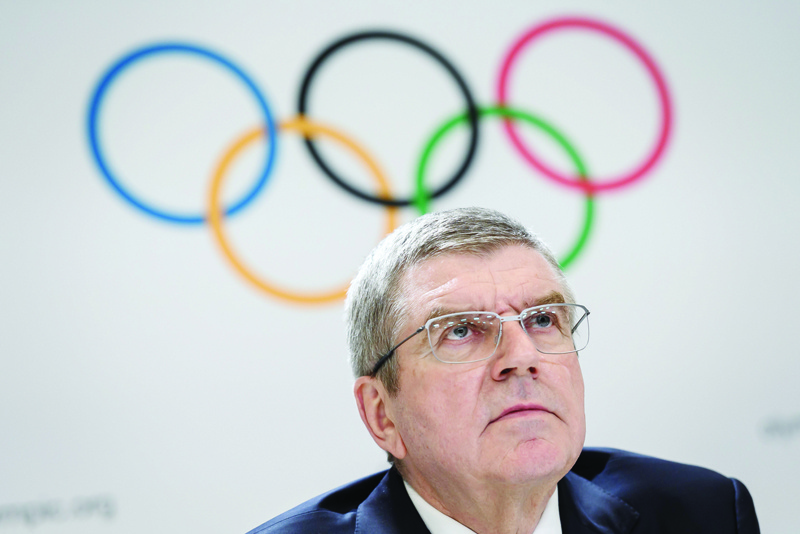
LAUSANNE: Thomas Bach will stand unopposed to serve a second term as International Olympic Committee president, the body said yesterday. Bach, a 66-year-old German lawyer, is set to be confirmed for a second and final four-year term at an IOC session in March in Athens. Bach was initially elected for an eight-year term as Olympic chief in September 2013, taking over from Belgian Jacques Rogge. If re-elected, Bach's term will end in 2025, a year after the Paris Olympics.
The next term for the IOC presidency will start after the Tokyo 2020 Olympics, which will now take place from July 23-Aug 8, 2021, having been postponed because of the coronavirus pandemic. Bach, who won gold for West Germany in the foil fencing team event at the 1976 Olympics, was elected an IOC member at the age of 37 and went on to play a series of influential roles within the organization, notably as a founding member of the IOC's Athletes' Commission, before being elected its ninth president.
Under his reign as IOC chief, Bach has had to grapple with several political challenges, and has notably overseen the 2014 Sochi Winter Olympics and the 2016 Rio Summer Games, both perceived as the most troublesome in recent years. He has also been a key player in the ongoing Russian doping saga, although the IOC came in for criticism from some quarters for not issuing Moscow with a blanket ban over its state-sponsored doping system.
Bach also came under fire for reinstating the Russian National Olympic Committee after the 2018 Pyeongchang Winter Olympics despite failed drugs tests there. He is credited, however, with having put in place the Olympic Agenda 2020, featuring reforms aimed at cutting costs and streamlining bidding processes to better attract potential host cities. The IOC, however, is arguably facing its biggest challenge in Bach's tenure in the form of the Covid-19 pandemic, with the rescheduling of the Tokyo Games meaning Beijing will host the 2022 Winter Olympics just six months later.
Giant Olympic rings
Meanwhile, a giant set of Olympic rings returned to Tokyo's waterfront yesterday after maintenance, with officials hoping the symbol will help build enthusiasm for the coronavirus-postponed Games. Promising vaccine trials have boosted Tokyo's hopes of holding the Olympics, now scheduled to open July 23, 2021 after the pandemic forced the unprecedented decision to delay. The 69-ton interlocking rings were installed in Tokyo's Odaiba bay area at the start of the year as the city began the final countdown to the Games, but were towed away in August for maintenance and inspections. They returned yesterday with a fresh coat of paint and plans to light them up at night.
"We are working very hard so that we can hold an Olympic Games in which people will feel safe," Tokyo city government official Atsushi Yanashimizu told reporters. "With the installation of the Olympic symbol, we would like more people to feel that the event is approaching soon and to feel excited about it." A poll in July showed that just one in four people in Japan wanted to see the Games held in 2021, with most backing either a further delay or a cancellation. There are also reportedly concerns among sponsors, with organizers tightlipped on how many will extend their contracts.
Olympic and Japanese officials have said they remain committed to holding the Games next year, and International Olympic Committee head Thomas Bach said in Tokyo last month he was "very, very confident" that spectators will be able to attend. The rings will stay in place until the end of the Olympics, and will then be replaced by the Paralympics symbol in mid-August. "We would like many people to come here and see it and feel the momentum, while being cautious about virus prevention" said Yanashimizu.- Agencies
.jpg)
